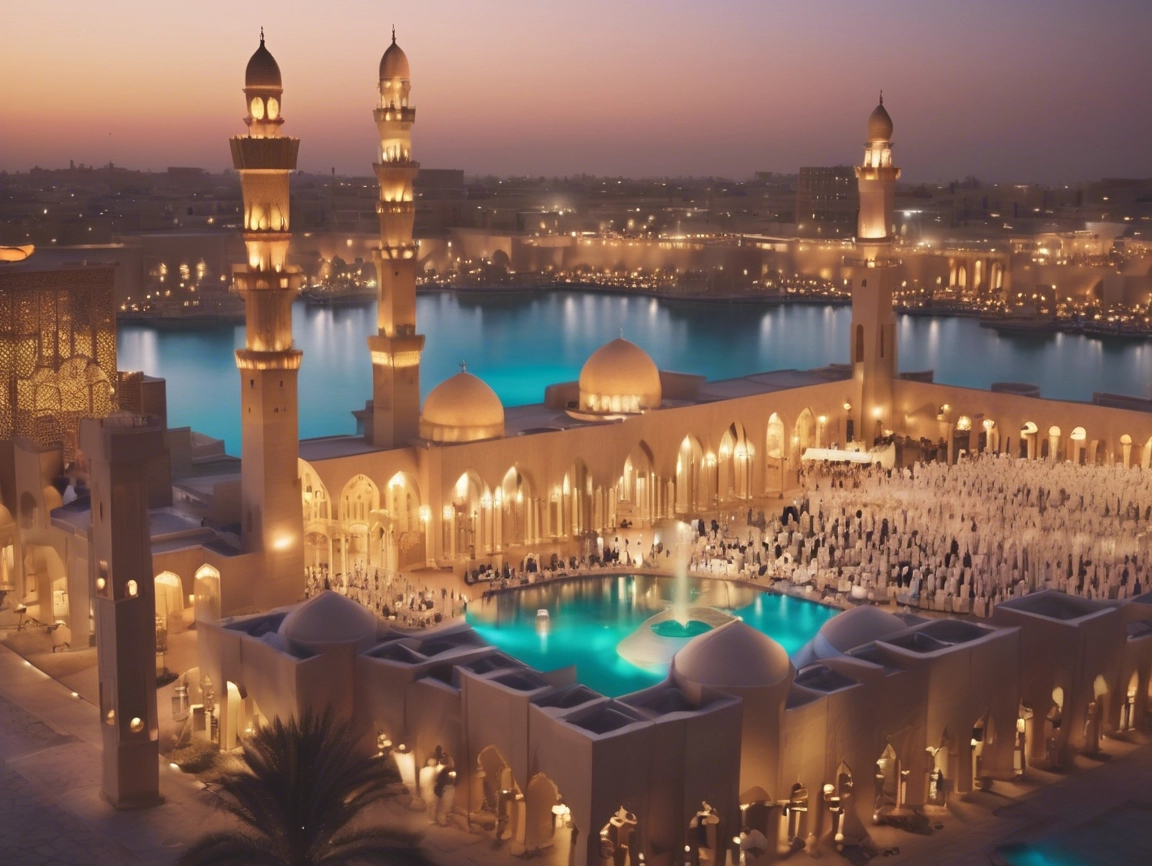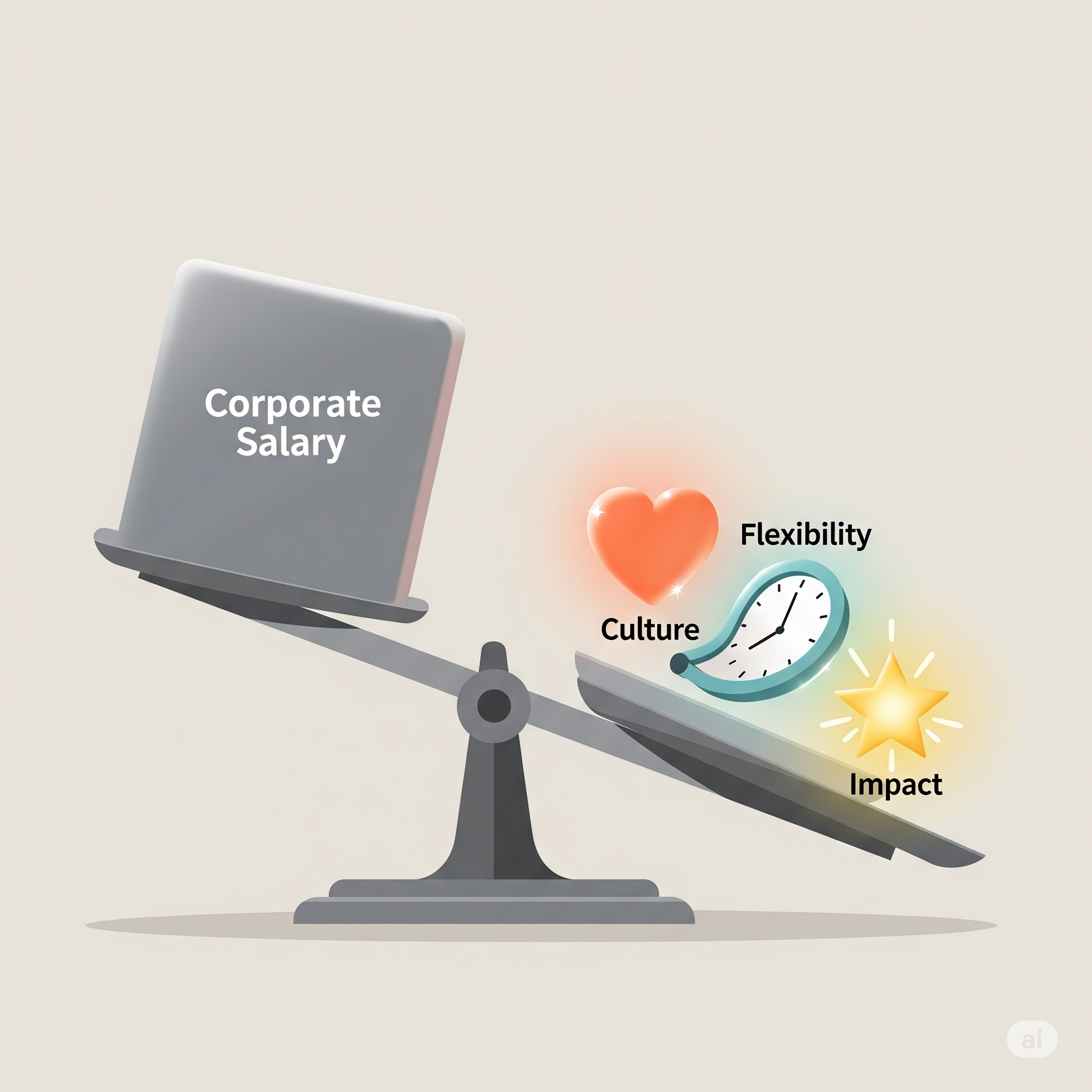The global landscape of business events, often known as the **MICE** (Meetings, Incentives, Conferences, and Exhibitions) industry, is a powerful engine for economic growth, knowledge exchange, and cultural understanding. It’s more than just people gathering in a room; it’s about forging connections, sharing ideas, and driving progress. And in this dynamic world, the **Middle East** is rapidly emerging as a central player, with two nations, **Jordan** and **Oman**, leading the charge in collaboration with the International Congress and Convention Association (**ICCA**).
This alliance isn’t just news; it’s a strategic move set to redefine the region’s standing in the international business events arena, promising a future brimming with opportunities and innovation.
Understanding the Power of MICE: More Than Just Meetings
Before diving into the specifics of Jordan, Oman, and ICCA, let’s understand what the MICE industry truly represents and why it’s so incredibly vital for any nation’s economy.
The acronym MICE stands for:
- Meetings: These are usually shorter, smaller gatherings of people for specific business or professional purposes. Think board meetings, training sessions, or strategy workshops.
- Incentives: These are often travel rewards given by companies to employees or partners as a way to motivate and recognize performance. They are usually leisure-based but with a professional networking component.
- Conferences: Larger, more formal gatherings where people come together to discuss a specific topic, share research, or update on industry trends. Think scientific conferences, annual association meetings, or industry summits.
- Exhibitions: Also known as trade shows or expos, these are events where companies display their products or services to potential customers or partners. They provide platforms for networking, sales, and market entry.
Why MICE Matters for a Nation’s Economy
The MICE industry might seem like a niche part of tourism, but its impact stretches far beyond just hotels and flights. It’s a cornerstone of economic development for several compelling reasons:
- Economic Diversification: For countries like Jordan and Oman, which are actively working to reduce their reliance on traditional industries, MICE offers a robust avenue for new revenue streams. It attracts high-spending business travelers who contribute significantly to local economies.
- Job Creation: The MICE sector supports a vast ecosystem of jobs, from event planners and venue staff to caterers, transportation providers, security personnel, and even local artisans who supply gifts and souvenirs. This creates employment opportunities across various skill levels.
- Infrastructure Development: To host large-scale events, cities and countries need world-class infrastructure – modern convention centers, high-quality hotels, efficient transportation networks, and reliable connectivity. Investing in MICE often leads to significant upgrades in these areas, benefiting residents and tourists alike.
- Knowledge Transfer and Innovation: Conferences and exhibitions bring together experts and thought leaders from around the world. This facilitates the exchange of ideas, the sharing of best practices, and the introduction of new technologies and innovations. This knowledge transfer can spur local industries and drive economic growth.
- Brand Building and Reputation: Successfully hosting international events elevates a country’s profile on the global stage. It showcases its capabilities, hospitality, and attractiveness as a destination for both business and leisure, leading to increased tourism and foreign investment.
- Direct and Indirect Spending: Attendees of MICE events spend money not just on the event itself (registration, venue fees) but also on accommodation, food and beverages, local transportation, shopping, and entertainment. This direct spending then creates a ripple effect, supporting many other local businesses.
In essence, MICE is a sophisticated form of tourism that brings significant economic, social, and intellectual benefits, making it a highly desirable industry for any nation looking to grow and prosper.
ICCA: The Global Leader in Business Events
At the heart of the international congress and convention industry lies **ICCA**, the International Congress and Convention Association. Founded in 1963, ICCA has grown into one of the most prominent organizations in the global MICE landscape.
What is ICCA and What Does It Do?
ICCA is a global community and knowledge hub for the international association meetings industry. Its primary mission is to:
- Connect Suppliers and Buyers: ICCA brings together destination marketing organizations, convention centers, hotels, PCOs (Professional Conference Organizers), and other service providers with international associations that organize regular meetings.
- Provide Data and Research: It collects and publishes valuable data on international association meetings, helping members identify potential leads and understand market trends. This data is crucial for strategic planning and decision-making.
- Offer Education and Training: ICCA provides a wide range of educational programs, workshops, and resources to help its members develop their skills, stay updated on industry best practices, and enhance their competitiveness.
- Advocate for the Industry: It represents the interests of the international association meetings industry on a global scale, promoting its value and addressing challenges faced by its members.
- Facilitate Networking: Through various events, regional chapters, and online platforms, ICCA creates unparalleled networking opportunities for its members, fostering collaboration and partnerships.
With a global membership spanning nearly 100 countries and territories, ICCA plays a pivotal role in shaping the future of the international business events industry. Being an ICCA member signifies a commitment to excellence and a connection to a global network of industry leaders.
The Middle East: A Rising Star in the MICE World
For decades, traditional MICE powerhouses were predominantly located in Europe and North America. However, in recent years, the **Middle East** has emerged as a formidable contender, quickly transforming into a sought-after destination for international meetings and events.
Why the Middle East is Becoming a MICE Magnet
Several factors contribute to the Middle East’s increasing appeal in the MICE sector:
- Strategic Location: The region serves as a vital bridge between East and West, making it easily accessible for delegates from Europe, Asia, Africa, and beyond. This geographical advantage minimizes travel time and costs for many international participants.
- State-of-the-Art Infrastructure: Many Middle Eastern countries have invested heavily in developing world-class infrastructure. This includes:
- Modern Convention Centers: Equipped with the latest technology, flexible spaces, and high capacities.
- Luxury Hotels: A vast array of international hotel chains offering unparalleled hospitality and amenities.
- Efficient Transportation Networks: Expansive international airports, well-maintained road networks, and increasingly, advanced public transport systems.
- Government Support and Vision: Governments across the Middle East recognize the MICE industry’s potential for economic diversification. They actively support its growth through favorable policies, investment incentives, and strategic tourism initiatives. Many countries have national visions that prominently feature MICE as a key growth area.
- Cultural Appeal and Unique Experiences: Beyond business, the Middle East offers a rich tapestry of history, culture, and natural beauty. Delegates can extend their stays for unique incentive trips, exploring ancient ruins, vibrant souks, breathtaking deserts, or stunning coastlines. This blend of business and leisure adds immense value.
- Safety and Stability: Many countries in the region are renowned for their high levels of safety and political stability, which are crucial considerations for event organizers bringing international delegates.
- Exceptional Hospitality: The Middle Eastern tradition of hospitality is legendary. Visitors are welcomed with warmth and generosity, ensuring a comfortable and memorable experience.
This combination of factors has positioned the Middle East as a dynamic and competitive player in the global MICE landscape, ready to host events of any scale and complexity.
Jordan: A New Force on the ICCA Board
One of the exciting developments highlighted by ICCA is the growing prominence of **Jordan** within the organization, particularly its recent representation on the ICCA Board. This is a significant milestone for the Hashemite Kingdom and a clear signal of its rising stature in the MICE world.
Jordan’s Unique MICE Potential
Jordan is a land steeped in history, boasting a legacy that spans millennia. While traditionally known for its incredible archaeological sites and religious landmarks, it’s increasingly making a name for itself as a compelling MICE destination.
- Historical and Natural Wonders: Imagine delegates unwinding after a productive conference with a trip to the ancient city of Petra, one of the New Seven Wonders of the World, or floating effortlessly in the therapeutic waters of the Dead Sea. These unique experiences offer unparalleled incentive opportunities.
- Cultural Immersion: From exploring Roman ruins in Jerash to experiencing Bedouin hospitality in Wadi Rum, Jordan offers rich cultural experiences that can be integrated into incentive programs or post-conference tours, creating truly unforgettable moments.
- Modern Facilities in Amman: The capital city, Amman, is a bustling metropolis with modern hotels, conference venues, and the necessary infrastructure to host international events. It combines ancient charm with contemporary amenities.
- Connectivity: Queen Alia International Airport in Amman serves as a regional hub, offering good connectivity to major cities worldwide.
- Skilled Workforce: Jordan boasts a well-educated population, with many young professionals fluent in English and trained in hospitality and event management.
The Significance of Jordan Joining the ICCA Board
For Jordan to have a representative on the ICCA Board is a testament to its commitment and potential in the business events sector. This isn’t just a symbolic gesture; it brings tangible benefits:
- Increased Visibility and Influence: Being on the Board gives Jordan a direct voice in shaping ICCA’s strategies and priorities. It raises the country’s profile within the global MICE community, putting it on the radar of more international event organizers.
- Access to Global Insights: Board members gain invaluable insights into global MICE trends, challenges, and opportunities. This knowledge can be directly applied to develop and refine Jordan’s national MICE strategy.
- Enhanced Networking: Direct involvement with ICCA’s leadership team and top industry professionals fosters deeper connections and partnership opportunities.
- Credibility and Trust: Board representation signals that Jordan is a serious and reliable player in the MICE industry, building trust among potential clients and investors.
- Advocacy for Regional Needs: Jordan’s presence can help ensure that the unique needs and perspectives of the Middle East region are considered in ICCA’s global initiatives.
This move indicates Jordan’s proactive approach to positioning itself as a key destination for international meetings, leveraging its unique assets and dedicated professionals to attract a greater share of the global MICE market.
Oman: A Strategic Hub and ICCA Host
While Jordan makes its mark with new board representation, **Oman** has been strategically building its MICE capabilities and solidifying its position as a key player in the region, exemplified by its recent hosting of the ICCA Board Meeting.
Oman’s MICE Infrastructure: The Oman Convention & Exhibition Centre (OCEC)
A prime example of Oman’s commitment to the MICE industry is the magnificent **Oman Convention & Exhibition Centre (OCEC)**. Located in Muscat, the OCEC is more than just a building; it’s a statement of intent.
- World-Class Facilities: The OCEC boasts vast exhibition halls, state-of-the-art auditoriums, numerous meeting rooms, and extensive hospitality areas. It’s designed to host a wide range of events, from large-scale international exhibitions to intimate corporate gatherings.
- Advanced Technology: Equipped with cutting-edge audiovisual systems, robust connectivity, and smart solutions, OCEC ensures seamless event delivery.
- Sustainable Design: Oman has a strong focus on sustainability, and the OCEC reflects this commitment with environmentally friendly design principles and operational practices.
- Strategic Location: Situated close to Muscat International Airport and a growing number of international hotels, it offers convenience for delegates.
The OCEC is a beacon of Oman’s investment in MICE, providing the infrastructure necessary to compete on a global scale.
Oman’s Unique Selling Points for MICE
Beyond its impressive infrastructure, Oman offers a distinct experience that sets it apart:
- Natural Beauty: From the majestic Hajar Mountains and vast desert dunes to pristine coastlines and lush wadis, Oman’s diverse landscapes offer stunning backdrops for incentive trips and leisure activities.
- Authentic Culture and Heritage: Oman has carefully preserved its rich heritage, offering visitors a chance to experience authentic Arabian culture through traditional souks, historic forts, and warm Omani hospitality.
- Stability and Safety: Oman is known for its peaceful and stable environment, providing a secure setting for international delegates.
- Focus on Sustainability: The Omani government is deeply committed to sustainable tourism and development, appealing to organizations that prioritize environmental and social responsibility.
- Exceptional Service and Hospitality: Omani hospitality is legendary, characterized by genuine warmth and a commitment to ensuring visitors have an exceptional experience.
The Importance of Hosting the ICCA Board Meeting in Oman
Hosting the ICCA Board Meeting is a significant coup for Oman. It’s not just about showcasing the OCEC; it’s about:
- Direct Exposure to Key Decision-Makers: The Board Meeting brings ICCA’s top leadership and influential industry figures directly to Oman, allowing them to experience the country’s MICE capabilities and hospitality firsthand. This direct exposure can lead to future business.
- Enhanced Reputation: Successfully hosting such a high-profile meeting reinforces Oman’s reputation as a capable and desirable host for international events.
- Knowledge Exchange: It provides an opportunity for Omani MICE professionals to interact closely with global leaders, gaining valuable insights and strengthening relationships.
- Showcasing Cultural Strengths: Beyond the business agenda, the meeting allows Oman to highlight its unique cultural offerings and commitment to providing memorable delegate experiences.
Oman’s strategy is clear: combine world-class infrastructure with unique cultural appeal and a strong commitment to service, all while actively engaging with global industry leaders like ICCA.
Synergies and Strategic Growth: Jordan, Oman, and ICCA
The individual growth of Jordan and Oman in the MICE sector is impressive, but their combined efforts, especially with the support of ICCA, create a powerful synergy that promises even greater strategic growth for the entire Middle East.
How Collaboration Fuels Regional MICE Growth
The collective efforts of Jordan and Oman, supported by ICCA, exemplify the power of collaboration over competition within a region.
- Knowledge Sharing and Best Practices: By actively participating in ICCA and interacting with each other, Jordan and Oman can share their experiences, learn from successes and challenges, and adopt best practices in event management, marketing, and sustainability.
- Joint Marketing Initiatives: While they are distinct destinations, Jordan and Oman can collaborate on promoting the Middle East as a prime MICE region. This might involve joint presentations at international trade shows or shared marketing campaigns that highlight the diverse offerings of the broader region.
- Regional Events and Circuits: The growth of MICE in both countries could lead to the development of multi-destination events or regional event circuits, where delegates can experience the unique offerings of more than one country during their visit.
- Enhanced Infrastructure and Connectivity: As more MICE events are attracted to the region, there will be increased pressure and justification for further investment in regional connectivity, such as direct flights and improved ground transportation between countries.
Bolstering the “Ecosystem”
The term “ecosystem” in this context refers to the interconnected network of all entities involved in the MICE industry – from venues and hotels to event organizers, technology providers, transportation services, government bodies, and academic institutions. “Bolstering” this ecosystem means making it stronger, more resilient, and more effective.
- Training and Talent Development: A stronger ecosystem means investing in the local workforce. ICCA provides educational programs that can be tailored to the needs of Jordan and Oman, ensuring a pipeline of skilled professionals in event management, hospitality, and related fields.
- Technological Adoption: The MICE industry is increasingly reliant on technology, from virtual and hybrid event platforms to AI-driven matchmaking and smart venue management. ICCA can facilitate the adoption of these technologies, ensuring the region remains competitive.
- Sustainability Initiatives: As environmental consciousness grows, sustainable event practices are becoming crucial. ICCA encourages and shares best practices in green meetings, helping Jordan and Oman implement eco-friendly approaches that appeal to a wider range of clients.
- Standardization and Quality Control: A robust ecosystem often benefits from shared standards of quality and service. ICCA’s global benchmarks can help countries like Jordan and Oman align their offerings with international expectations, enhancing their overall appeal.
The strategic partnership between ICCA, Jordan, and Oman is therefore not just about individual success stories; it’s about creating a rising tide that lifts all boats within the Middle East MICE industry. By strengthening the foundational elements of their business events ecosystem, they pave the way for sustained growth and global recognition.
The Economic Ripple Effect: Beyond Tourism
We’ve already touched upon the direct economic benefits of MICE, but it’s crucial to understand the wider **ripple effect** that these events create throughout the economy, extending far beyond the immediate tourism sector. This is where the true power of the MICE industry lies.
Direct Economic Impacts
These are the immediate financial gains that occur as a direct result of MICE activities:
- Venue Revenue: Income generated from renting out convention centers, exhibition halls, and meeting rooms.
- Accommodation: Hotel bookings and other lodging revenues from delegates.
- Food and Beverage (F&B): Catering services for events, restaurant meals consumed by attendees, and local grocery purchases.
- Transportation: Airport transfers, local taxi services, car rentals, and public transport usage by delegates.
- Event Services: Spending on AV equipment, staging, décor, photography, security, and cleaning services for events.
- Shopping and Retail: Delegates often purchase souvenirs, local crafts, and other goods during their stay.
Indirect Economic Impacts
These impacts are felt within the supply chain that supports the direct MICE activities:
- Suppliers to Hotels and Venues: Increased demand for linens, cleaning supplies, food products, and maintenance services for hospitality providers.
- Local Producers: Farmers, artisans, and manufacturers who supply goods to caterers, hotels, and retail outlets frequented by delegates.
- Transportation Infrastructure: Increased usage and demand for maintenance and development of airports, roads, and public transport systems.
- Logistics and Freight: Services needed to transport exhibition materials, catering supplies, and equipment.
Induced Economic Impacts
These are the broader effects that arise from the spending of those directly and indirectly employed by the MICE industry:
- Household Spending: Wages earned by MICE industry employees (event planners, hotel staff, drivers, etc.) are spent on housing, food, entertainment, and other consumer goods and services, stimulating demand across various sectors.
- Investment: Profits generated by MICE-related businesses can be reinvested into expansions, new technologies, or training, leading to further job creation and economic growth.
Non-Economic Benefits
Beyond the financial metrics, MICE events deliver profound non-economic benefits that are equally important for a nation’s development:
- Knowledge Transfer and Research: Conferences act as hubs for scientific breakthroughs, medical advancements, and technological innovations. This exchange of knowledge can accelerate local research and development.
- Skills Development: Hosting international events encourages the development of a highly skilled local workforce in event management, hospitality, linguistics, and technology.
- Innovation and Entrepreneurship: Exhibitions often showcase new products and services, inspiring local entrepreneurs and fostering an environment of innovation.
- International Relations and Diplomacy: Large conferences can strengthen diplomatic ties and foster international goodwill, improving a nation’s standing on the global stage.
- Cultural Exchange: Delegates experience the local culture, fostering understanding and breaking down stereotypes. This can enhance a nation’s “soft power.”
- Attraction of Foreign Direct Investment (FDI): Business events provide platforms where potential investors can assess a country’s capabilities, infrastructure, and business environment firsthand, often leading to significant FDI.
- Talent Attraction: Showcasing a vibrant MICE sector can attract skilled professionals to relocate, further enriching the local talent pool.
The true value of MICE, therefore, extends far beyond the direct revenue generated. It acts as a catalyst for widespread economic growth, human capital development, and international collaboration, creating a lasting legacy for the host nation.
Challenges and the Path Forward
While the outlook for Middle East MICE, driven by Jordan and Oman with ICCA’s support, is overwhelmingly positive, no industry is without its challenges. Recognizing and addressing these hurdles is crucial for sustained growth.
Potential Challenges for Middle East MICE
- Intense Global Competition: The MICE market is highly competitive, with established players in Europe and North America, and emerging markets in Asia also vying for international events.
- Global Economic Shifts: Economic downturns or geopolitical instabilities can impact travel budgets and event participation.
- Talent Development: Ensuring a continuous supply of skilled professionals in event management, hospitality, and related services to meet the growing demand can be a challenge.
- Sustainability Demands: As environmental concerns grow, event organizers increasingly demand sustainable practices. Meeting these demands requires ongoing investment and commitment.
- Technological Evolution: Rapid advancements in event technology (e.g., hybrid events, AI, VR) require continuous adaptation and investment to stay current.
- Marketing and Branding: Building a strong, consistent brand image for the Middle East as a premier MICE destination requires sustained marketing efforts.
How ICCA, Jordan, and Oman Are Addressing These Challenges
The strategic collaboration is designed to mitigate these challenges:
- Leveraging ICCA’s Global Network: ICCA’s vast network provides access to market intelligence, best practices, and potential clients, helping members navigate competitive landscapes.
- Investing in Education and Training: Both Jordan and Oman are focusing on developing their human capital. This includes professional development programs, partnerships with academic institutions, and specialized MICE training, often facilitated or guided by ICCA’s educational resources.
- Adopting Sustainable Practices: With the OCEC in Oman leading the way, there’s a concerted effort to integrate sustainable practices into event operations and venue management, appealing to environmentally conscious event organizers.
- Embracing Technology: Venues are continuously upgrading their technological infrastructure to support hybrid events, virtual components, and enhanced delegate experiences. ICCA provides platforms for sharing technological advancements.
- Differentiated Marketing: Both countries are actively marketing their unique selling points – Jordan’s historical depth and adventure tourism, and Oman’s natural beauty and authentic culture – to stand out in the global market.
- Strong Government Support: The continued backing from their respective governments ensures that the MICE industry remains a national priority, with resources allocated for infrastructure development and promotional activities.
Future Outlook for MICE in the Region
The future for MICE in the Middle East, particularly with the combined strength of Jordan, Oman, and ICCA, looks incredibly promising.
- Continued Growth: Expect to see a steady increase in the number and size of international association meetings, conferences, and exhibitions hosted in the region.
- Niche Specialization: Countries might start specializing in certain types of events, aligning with their economic strengths (e.g., medical conferences, energy summits, tech expos).
- Enhanced Delegate Experience: The focus will remain on delivering exceptional experiences, combining world-class business facilities with unique cultural immersion and leisure opportunities.
- Increased Regional Collaboration: The success of Jordan and Oman is likely to inspire more regional cooperation, fostering a stronger and more integrated Middle Eastern MICE offering.
- Innovation and Sustainability: The region will continue to be a testbed for innovative event technologies and sustainable practices, setting new benchmarks for the industry.
By proactively addressing challenges and continuously investing in their MICE ecosystems, Jordan and Oman, with ICCA’s global leadership, are not just preparing for the future; they are actively shaping it.
Conclusion
The story of **ICCA’s** collaboration with **Jordan** and **Oman** is a compelling narrative of strategic growth and leadership within the global business events ecosystem. It highlights how targeted investment, strong government support, unique cultural offerings, and crucial partnerships can transform a region’s economic landscape.
Jordan’s new representation on the ICCA Board signifies its rising influence and commitment, while Oman’s world-class facilities like the OCEC and its successful hosting of the ICCA Board Meeting underscore its established strength. Together, these nations, empowered by ICCA’s global network and expertise, are creating a vibrant and robust MICE hub in the Middle East.
This isn’t just about attracting more meetings; it’s about fostering knowledge exchange, driving economic diversification, creating jobs, and enhancing the global reputation of the region. The ripple effect of these efforts will extend far beyond the immediate tourism sector, touching various industries and contributing to the overall prosperity and development of these dynamic nations. As the world continues to connect and collaborate, the Middle East, with Jordan and Oman at the forefront, is poised to play an increasingly vital role in shaping the future of global business events. The stage is set, and the future looks exceptionally bright for the MICE industry in this strategically important part of the world.



